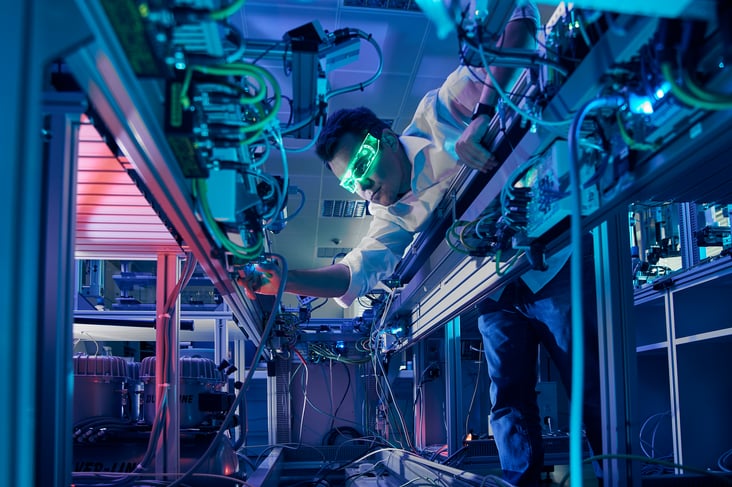
RH-Infoveranstaltung „Meine Zukunft Ingenieur:in“ am 08. Mai
Erkunde deine Zukunft als Ingenieur:in beim Infoabend der Rheinischen Fachhochschule Köln!
Wir heißen ab sofort Rheinische Hochschule Köln. Die Namensänderung spiegelt unseren Wandel von einer Fachhochschule zur Hochschule für Angewandte Wissenschaften wider und unterstreicht unsere Positionierung auf dem Bildungsmarkt. Mehr erfahren.
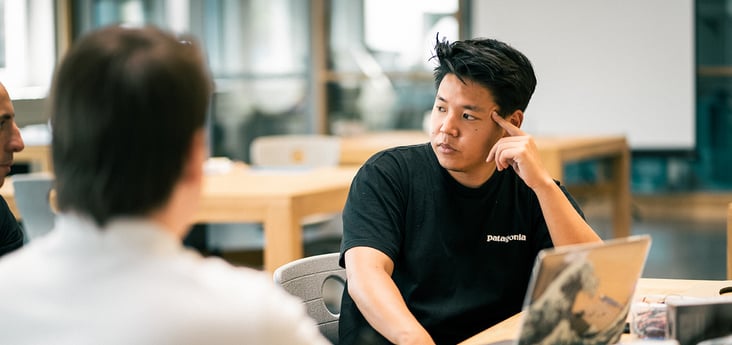 Online
Online
Möchtest du dich unverbindlich über unseren Bachelorstudiengang „Informatik“ informieren? Dann bist du herzlich eingeladen, an unserem Infotermin ...
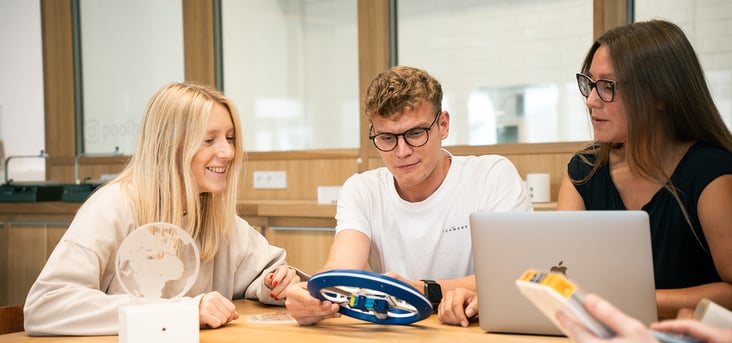 Am Campus
Am Campus
Möchtest du dich unverbindlich über unseren Masterstudiengang „Technical Management“ informieren? Dann bist du herzlich eingeladen, an unserem ...
 Online
Online
Möchtest du dich unverbindlich über unseren Masterstudiengang „Öffentliche Sicherheit“ informieren? Dann bist du herzlich eingeladen, an unserem ...
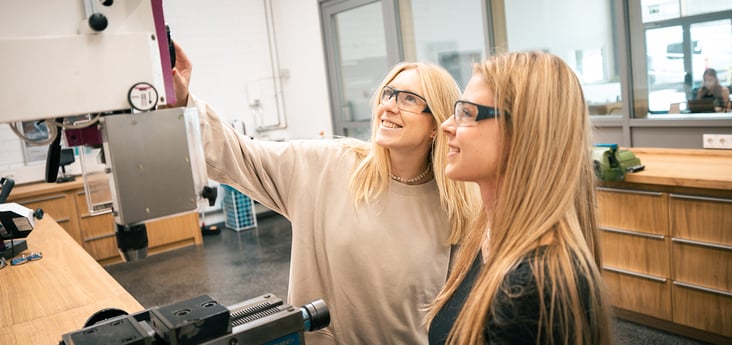 Online
Online
Möchtest du dich unverbindlich über unseren Masterstudiengang „Arbeits-, Betriebs- und Anlagensicherheit“ informieren? Dann bist du herzlich ...
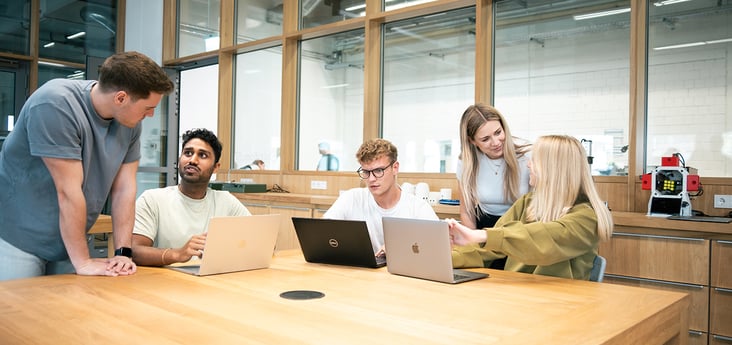 Online
Online
Möchtest du dich unverbindlich über unseren Bachelorstudiengang „Medizinökonomie & Digitales Management“ informieren? Dann bist du herzlich ...
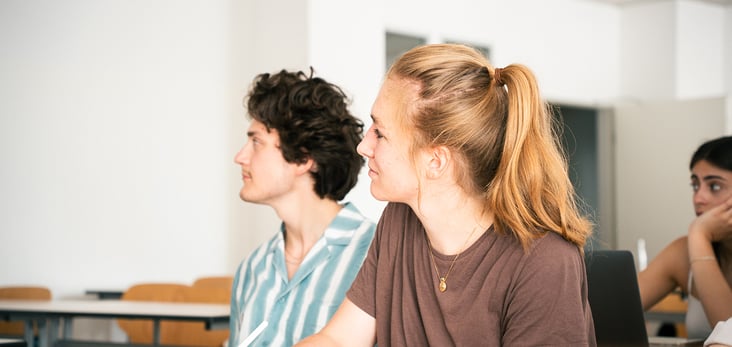 Online
Online
Möchtest du dich unverbindlich über unseren Masterstudiengang „Gesundheitsökonomie“ informieren? Dann bist du herzlich eingeladen, an unserem ...
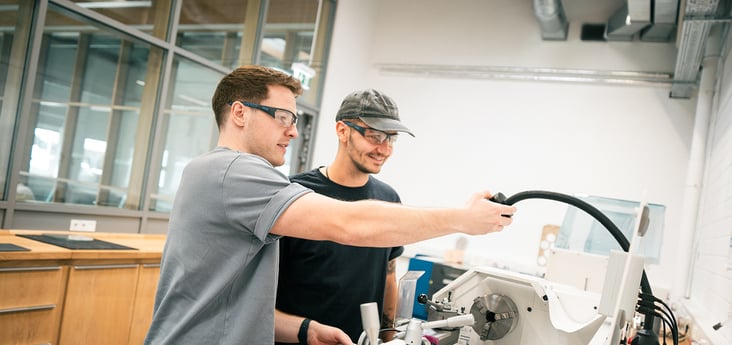 Am Campus
Am Campus
Möchtest du dich unverbindlich über unseren Bachelorstudiengang „Maschinenbau“ informieren? Dann bist du herzlich eingeladen, an unserem Infotermin ...
 Vor Ort
Vor Ort
Die Veranstaltung findet an den Ausbildungsstandorten unseres Partners medicoreha Dr. Welsink Akademie in Neuss oder in Mülheim an der Ruhr statt.
 Online & am Campus
Online & am Campus
Möchtest du dich unverbindlich über unseren Bachelorstudiengang „Mediendesign“ informieren? Dann bist du herzlich eingeladen, an unserem Infotermin ...
 Online
Online
Möchtest du dich unverbindlich über unseren Bachelorstudiengang „Wirtschaftsinformatik“ informieren? Dann bist du herzlich eingeladen, an unserem ...
 Online
Online
Möchtest du dich unverbindlich über unseren Masterstudiengang „User Experience Design“ informieren? Dann bist du herzlich eingeladen, an unserem ...
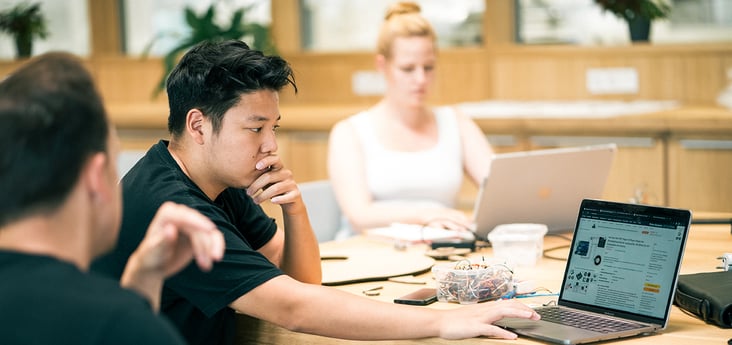 Online
Online
Möchtest du dich unverbindlich über unseren Bachelorstudiengang „Wirtschaftsinformatik“ informieren? Dann bist du herzlich eingeladen, an unserem ...
 Online
Online
Möchtest du dich unverbindlich über unseren Bachelorstudiengang „Nachhaltigkeitsmanagement“ informieren? Dann bist du herzlich eingeladen, an unserem ...
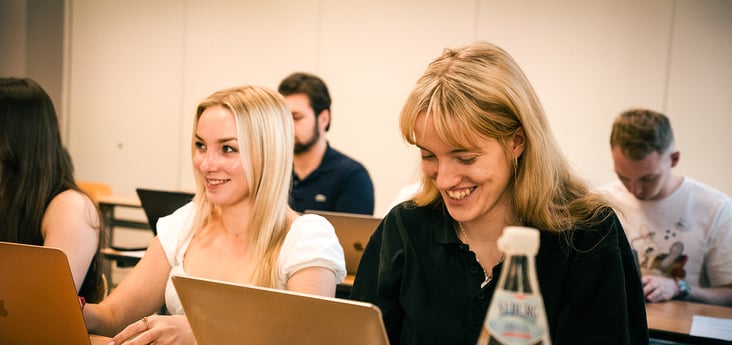 Online
Online
Möchtest du dich unverbindlich über unseren Bachelorstudiengang „Unternehmensmanagement“ informieren? Dann bist du herzlich eingeladen, an unserem ...
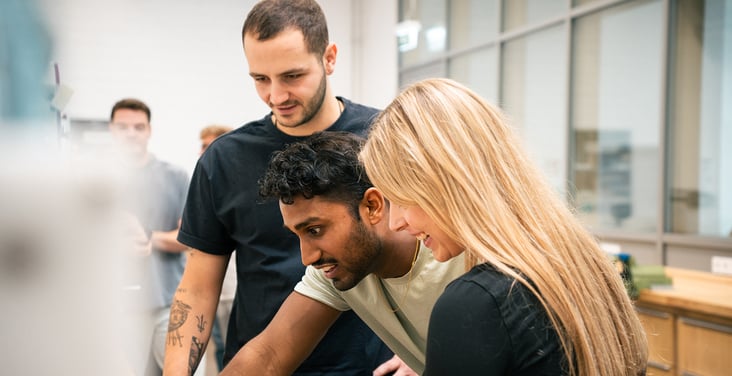 Online
Online
Möchtest du dich unverbindlich über unseren Masterstudiengang „Entrepreneurship“ informieren? Dann bist du herzlich eingeladen, an unserem Infotermin ...
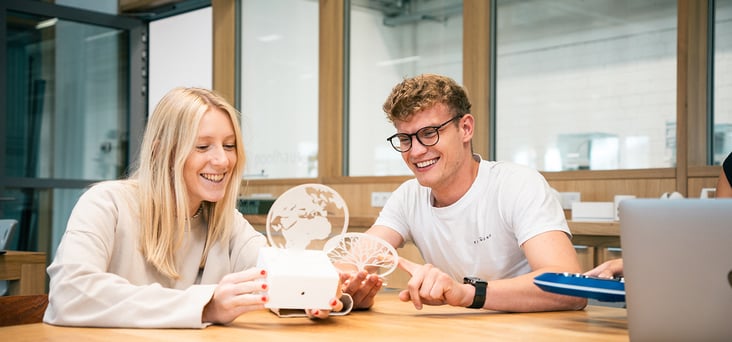 Online
Online
Möchtest du dich unverbindlich über unseren Masterstudiengang „MBA International Business“ informieren? Dann bist du herzlich eingeladen, an unserem ...
 Online
Online
Möchtest du dich unverbindlich über unseren Masterstudiengang „Compliance & Corporate Security“ informieren? Dann bist du herzlich eingeladen, an ...
 Am Campus
Am Campus
Erkunde deine Zukunft als Ingenieur:in beim Infoabend der Rheinischen Hochschule Köln! Du möchtest wissen, wie der Studienalltag aussieht oder wie ...
 Online
Online
Möchtest du dich unverbindlich über unseren Bachelorstudiengang „Betriebswirtschaftslehre“ informieren? Dann bist du herzlich eingeladen, an unserem ...
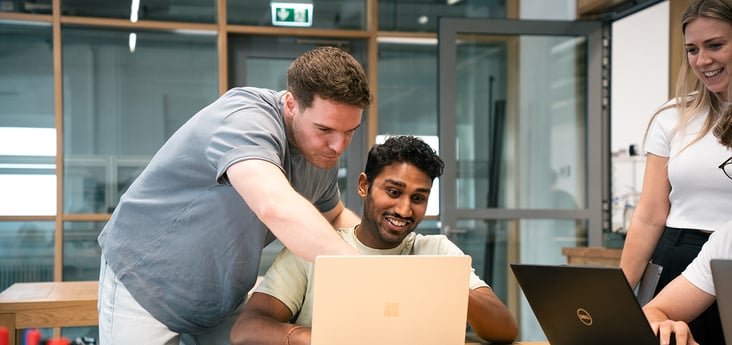 Online
Online
Möchtest du dich unverbindlich über unseren Masterstudiengang „Digital Transformation Management“ informieren? Dann bist du herzlich eingeladen, an ...

Du entscheidest, wer du heute bist und morgen mal sein wirst. Der nächste Schritt für deine Zukunft. Willst du ihn gehen?
Beim digitalen Open House stellen wir dir unsere Hochschule vor und stehen bereit, um all deine Fragen zu unseren Studiengängen, den Zulassungsvoraussetzungen, der Studienfinanzierung und vielen weiteren Themen zu beantworten.
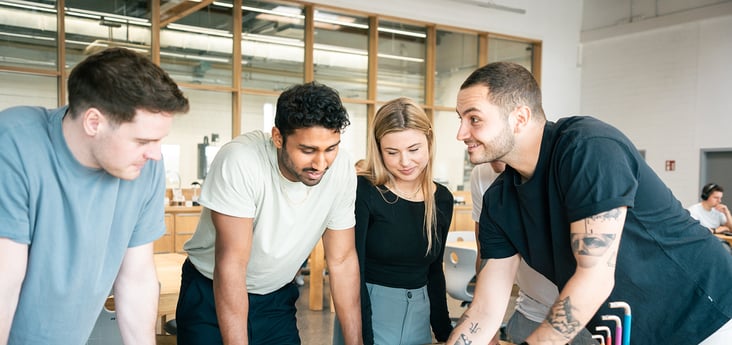 Online
Online
Du möchtest dich unverbindlich über ein Studium an der RH Köln informieren? Dann bist du herzlich eingeladen, an unserem Open House teilzunehmen! ...
Die Rheinische Hochschule Köln, kurz RH, ist eine staatlich anerkannte Hochschule für Angewandte Wissenschaften (HAW) in privater, gemeinnütziger Trägerschaft. Sie gehört zum Verbund der Rheinischen Stiftung für Bildung.

Erkunde deine Zukunft als Ingenieur:in beim Infoabend der Rheinischen Fachhochschule Köln!
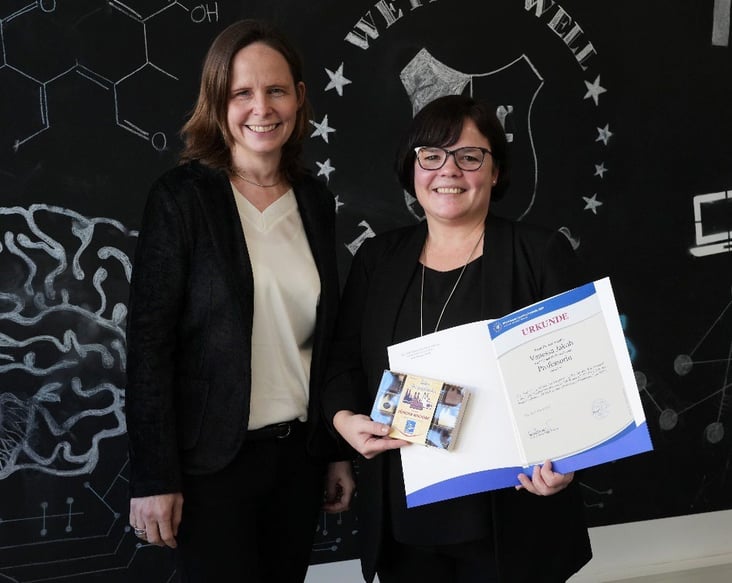
Claudia Bornemeyer überreicht Vanessa Jakob die Professor:innen-Urkunde
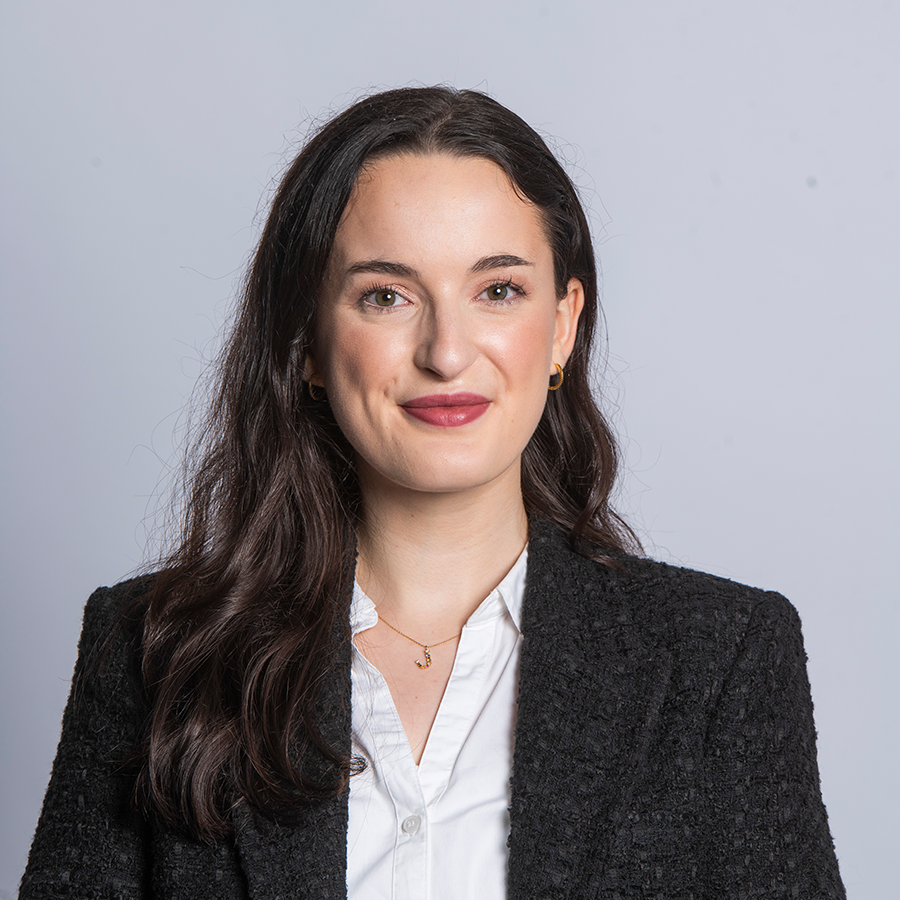
Jasmin Claus Alumna der Rheinischen Hochschule Köln„Mein Studium an der Rheinischen Hochschule Köln war für mich der ideale Start in meine Karriere. Die praxisorientierte Lehre hat mich gut auf das Berufsleben vorbereitet und die kleine Kursgröße ermöglichte einen engen Austausch mit den Dozenten."
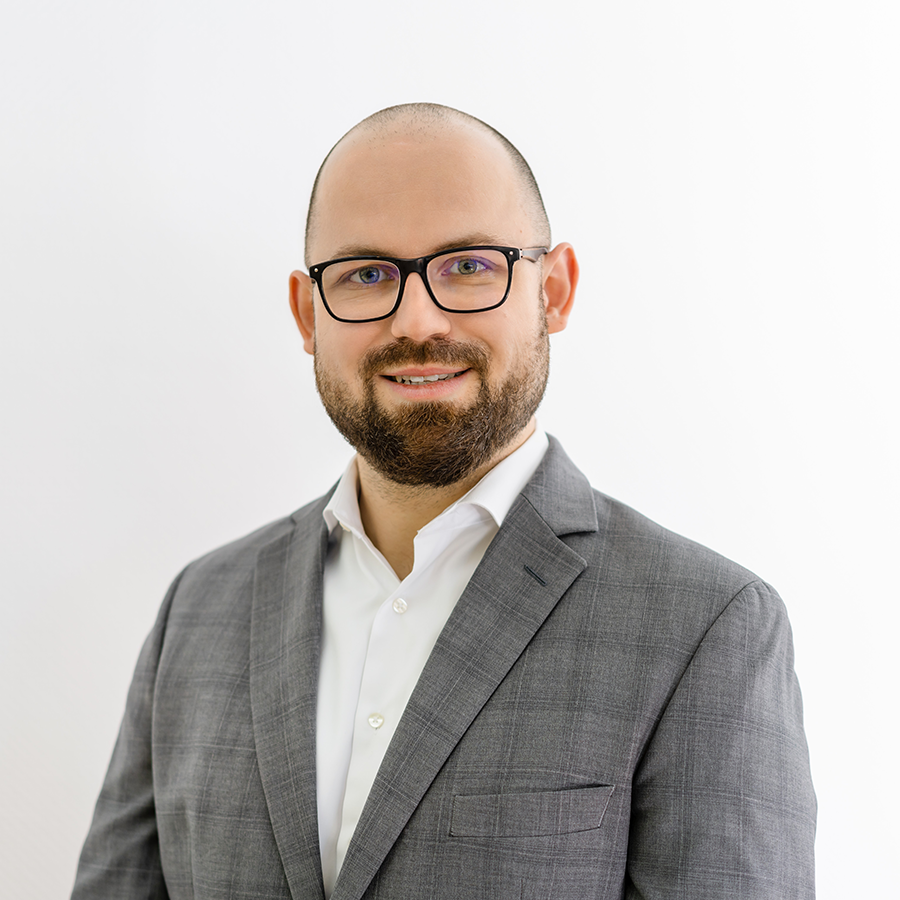
Tim Wozniak Alumna der Rheinischen Hochschule Köln„Das Studium an der RH ist zielführend, gut strukturiert aufgebaut und durch flache Hierarchien und hohe Ansprechbarkeiten der Dozierenden geprägt. Auch heute besteht noch Kontakt zu vereinzelten Dozierenden"

Alina Maaß Alumna der Rheinischen Hochschule Köln„Ich habe gerade meinen Masterabschluss gemacht und bin glücklich und stolz nun eine RH-Alumna zu sein. An der RH konnte ich praxisnah sehr viel lernen, neue Freundschaften schließen und Kontakte knüpfen. Ich freue mich jetzt gut ausgerüstet auf meine berufliche Zukunft (...).“

Elena Morawin Alumna der Rheinischen Hochschule Köln„Die RH hat mich mit einer Kombination aus vielfältigen theoretischen Modulen und Praxisprojekten überzeugt. Heute bin ich selbst Dozentin für UX Management und Design und arbeite bei MOIA, einer Volkswagen-Tochter in Hamburg."

Holger Klein Alumna der Rheinischen Hochschule Köln„Die geringe Gruppengröße ermöglichte es zudem immer wieder, bestimmte Sachverhalte zu diskutieren und dadurch noch weiter zu durchdringen. Bis heute profitiere ich beruflich unmittelbar vom Studium an der RH, da ich das dort erworbene Wissen immer wieder erfolgreich zur Anwendung bringen kann."
„Ich habe gerade meinen Masterabschluss gemacht und bin glücklich und stolz nun eine RH-Alumna zu sein. An der RH konnte ich praxisnah sehr viel lernen, neue Freundschaften schließen und Kontakte knüpfen. Ich freue mich jetzt gut ausgerüstet auf meine berufliche Zukunft (...).“
Alina Maaß Alumna User Experience Design

Unsere Studienberatung unterstützt dich fachkundig dabei, den besten Studiengang für dich zu finden.